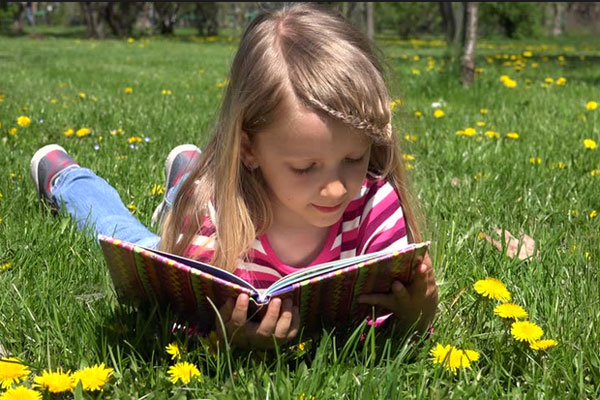
Photo by Robert Phelps
Welcome
Commentaries and observations about the conflicting moral beliefs and psychological issues facing our culture.

New essay every week
Subscribe to
"AWAY WITH WORDS"
You will receive an email announcing future posts to "Today's Ideas."
Your email address is safe with us, it is held with strict confidence and is not shared.
Sign up now

2 Mar 2026
The Wonder Of Creation
Go outdoors some dark, cloudless evening, and look up into the night sky. You’ll see an incalculable number of stars stretching across the darkness. These stars are a small portion of the Milky Way Galaxy. Our Sun is part of the Milky Way. Earth (where we live) is one of the Sun’s satellites.
But many folks ask: What is a galaxy, anyway?
Well, galaxies are huge - huge - collections of stars, planets. nebulae, various gases, space “dust,” dark matter and dark energy. These last two elements are called “dark” because science cannot explain them. We know they exist by their effects.
The Universe - stars and galaxies, seen and unseen, indeed all of Creation - is held together by the force of Gravity, which also keeps us rooted to Earth. In fact, Gravity’s effects exist throughout the Universe. However, astronomers tell us that the Universe is expanding, so the tug of Gravity is not supreme.
Our Milky Way is not, of course, the only galaxy in the Universe. Billions (some say trillions) of galaxies exist, each with its huge collection of stars. To add further Wonder, some astronomers believe our Universe is only one of uncounted Universes.
Our Universe is surely an endless Wonder, teeming with Mystery.
A Brief Look At Galaxies
So, we know that a galaxy is a collection of star “stuff” held together by Gravity. Some traits of galaxies are beyond fascinating. For instance:
- Most galaxies are hundreds of thousands of lightyears wide. What does that mean?
- A “light-year” is the distance light travels in one year.
- The speed of light is about 186,000 miles a second.
- Thus, the distance light covers in a year is about 5.88 trillion miles (give-or-take a few million).
Each galaxy has huge numbers of stars, ranging from a few hundred million to hundreds of billions of stars. Many galaxies (our Milky Way included) also have a huge Black Hole at their center (we will discuss Black Holes another time).
In earlier years, science suggested that the observable Universe might contain at least 100–200 billion galaxies. Recent studies suggest the number is closer to 2 trillion (with a T) galaxies we can observe. But astronomers say even more galaxies exist in the yet-unseen Universe, beyond our present abilities to “see.”
The shape of galaxies varies. Our Milky Way is spiral shaped. This means it possesses young stars still forming (the shape of a galaxy is one way science studies the activities therein).
Another question arises:
- Since galaxies are collections of stars - sometimes millions of stars; and,
- Since billions of galaxies exist (each with uncounted numbers of stars),
- How many stars might exist in the Universe?
How Many Stars ?
It’s a difficult question. British author Ailso Harvey offers some considerations about the number of stars in our Universe.
First, what do we mean by "Universe?" Are there definite boundaries to the Universe? Or is it endless, infinite?
Physicist David Kornreich observes that “…we really don't know if the Universe is infinitely large or not." The observable Universe is roughly 13.8 billion years old, but that’s only an estimate. Our notion of “Time” is an arbitrary standard. And, as above, some scientists think we may live in a "multiverse" of Universes.
The answer is complicated by several other factors. For example:
- Some galaxies are better seen in visible light, some in infrared.
- Some of today’s experts now suggest there are about 2 trillion galaxies in the observable Universe, about 10 times more galaxies than previously suggested.
- Another difficulty is that today’s telescopes may not be able to view all the stars in a galaxy.
- Furthermore, dark matter and the rotation of galaxies must be filtered out before making an estimate.
- And remember that (1) the "observable" universe (what we see) is itself expanding, and (2) space-time can curve.
It seems almost naïve to say that difficulties of charting the positions, distances, movements and changes in brightness of stars in just our own Milky Way are daunting. Thus, correctly estimating the number of stars in the Universe is impossible.
Prof. Kornreich used a very rough estimate of 10 trillion galaxies in the Universe. Multiplying that by the Milky Way's estimated 100 billion stars results in a large number indeed:
1,000,000,000,000,000,000,000,000 stars (or so). That’s a "1" with 24 zeros after it. But researchers emphasize that Kornreich’s number is probably a gross underestimation.
When we ponder all this, Wonder overwhelms. And - mirabile dictu - you and I are part of this wondrous Universe. You and I are given life by our Creator.
Wonder and Mystery do indeed overwhelm.
Creation’s Plan
Science and common sense tell us that something does not come into existence out of nothing. Everything which exists does not just pop into existence. The Universe does not create nor sustain itself … nor do you and I.
Reality and Logic also tell us we are dependent beings. Our very existence insists that we recognize and acknowledge our own Creation, and Wisdom dictates Obedience to our Creator.
Reality also compels us to recognize the differences between the temporal and the eternal, between the finite and the infinite, between the naturally-occurring events in life and supernatural events (e.g., Lourdes, Fatima, et alii) which are meant to sustain our hopes beyond the blunders of our wayward egos and the allure of crass denial to which humanity is ever drawn.
We are blessed by our Creator with our ability to seek and find Goodness … but we also struggle with the dark side of our weak and fragile nature. However, we are given endless reasons for gratitude by these stunning Mysteries of Creation into which we are immersed. And we are given a conscience to repent and amend the mistakes we’ve made. We are blessed with Hope to recover our sense of Gratitude, and to express our fidelity to our Creator’s loving Presence – God, Who forgives our insincerity and upholds us in our struggle to express our Goodness.
We surely know that Goodness is our most desirable goal, but choosing Goodness is also a challenge which never ends. Yes, we are born with the freedom to choose Goodness in our actions and our attitudes. Nonetheless, our darker urge is to deny our moral lapses, to cover our mistakes and to choose an easier way.
Thus, many of us spend our years distractedly, trying to fulfill our ego’s selfish desires. But sooner or later (if we are honest with ourselves) we realize that we are not laws unto ourselves, not totally free from Divine restraints. Like it or not, we are subject to God’s Commandments and to the limits of our created nature.
Our mistakes spring from our own human weaknesses and our self-indulgences … but, hopefully, one day we look candidly beyond ourselves to summon up courage to change what may still be our hurtful ways and seek our Creator’s forgiveness which ever awaits with loving anticipation.
Finally . . .
So, sooner or later - willingly or unwillingly - our minds will hopefully betake us beyond our achievements and distractions. Our self-importance fades as we realize that a thousand years are but a moment in our Creator’s Eternal Now. We realize we are accountable both to God and to others with whom we share the gift of life.
Hopefully, we learn to accept God’s compassion and love, rather than trembling at His imagined vengeance or dismissing Him altogether and ignoring our responsibilities to Him and to one another.
And, hopefully, with Faith renewed, we are evermore grateful for our remaining days, as we begin to appreciate the Grand Mystery of the Universe and the gift of life … especially our own.